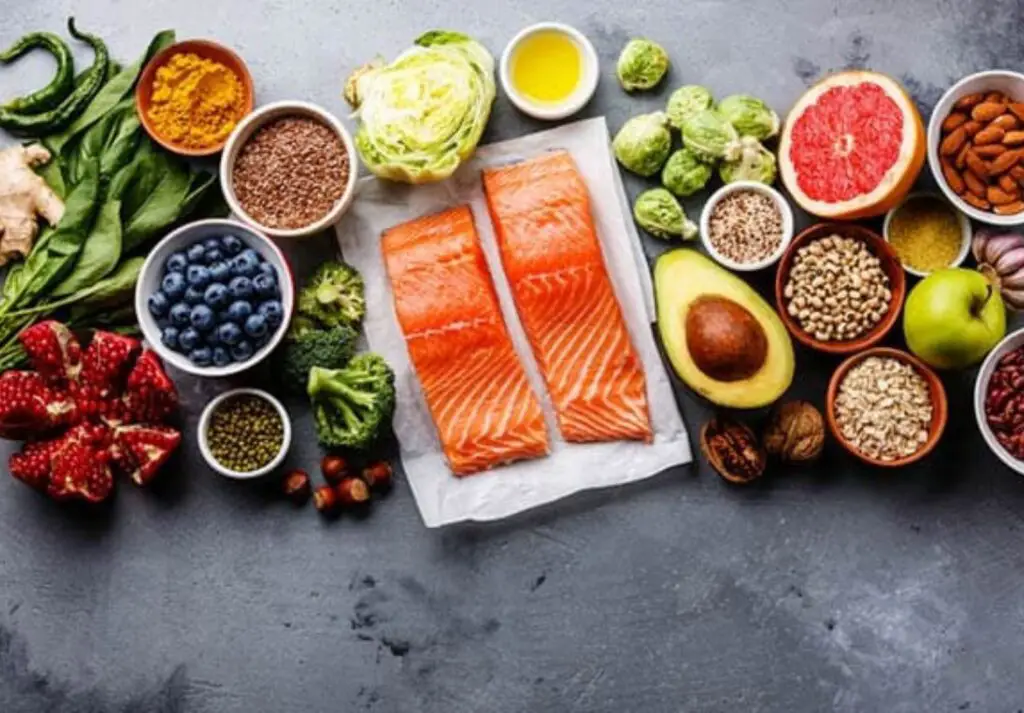You’ve probably heard of macronutrients, which are the carbohydrates, proteins, and fats that make up the majority of what we consume. But what about the micronutrients?

These include vitamins, minerals, and other critical elements that your body need in lower amounts yet are as significant. Here, we’ll go over the many types of micronutrients, what they do, why they’re important, and where they may be found in your daily meals.
What Are Micronutrients?
Micronutrients are the vitamins and minerals your body needs in tiny amounts. They help with everything from boosting your immune system and strengthening your bones to supporting brain function and healing wounds.
Nutrients can be divided into two primary categories macronutrients & micronutrients. Macronutrients (carbs, proteins, and fats), which your body needs in larger quantities to fuel your body and supply the body with energy through calories. Micronutrients (vitamins and minerals), which your body needs in tiny quantity for the various metabolic process.
Types of Micronutrients

There are 2 main types of primary nutrients vitamins and minerals. Which are needed in small amount of quantites.
1.Vitamins: Vitamins are important to support your body. They help with everything from turning food into energy to keeping your skin, eyes, and immune system in shape.
There are two categories of vitamins:
- Fat-soluble vitamins: Fat-soluble vitamins include vitamins A, D, E, and K. These are stored in your body’s fat and used when needed. They’re found in foods like dairy, eggs, leafy greens, and fatty fish.
- Water-soluble vitamins: Water-soluble vitamins include the B vitamins and vitamin C. They are usually dissolved in water so they don’t stay in the body because they are secreted through the urine when consumed in excess. So, regular consumption of water-soluble vitamins is vital.
2.Minerals: Minerals are like the building blocks for your body. They help with bone strength, fluid balance, nerve function, and even muscle contractions. Minerals are of 2 kinds: macrominerals are required in amounts greater than 100 mg per day, while microminerals are those nutrients required in amounts less than 100 mg per day.
- Macrominerals: Macrominerals include calcium, magnesium, potassium, and sodium which are required in large number for the better functioning of the body.
- Microminerals: Also known as Trace minerals. Microminerals include iron, zinc, copper, and selenium they are needed in very small amount.
Common Micronutrient Deficiencies
Even if your eating well, it’s still possible to miss out on some key micronutrients.
- Vitamin D: It is also known as the “sunshine vitamin” because your body can make it when your skin’s exposed to sunlight. But if you spend a lot of time indoors you may be low vitamin D that can mess with your mood, immune system, and bone health.
- Iron: Iron helps carry oxygen throughout your body, and without enough of it, you might feel tired, weak, or dizzy. It’s especially common for women.
- Vitamin B12: It’s mostly found in animal products, so if you’re vegan or vegetarian, it’s something to keep an eye on.
- Iodine: It helps keep your thyroid running smoothly, which controls your metabolism. Lack of iodine can lead to fatigue, weight gain, and even issues with memory. It’s found in iodized salt, seafood, and some dairy products.
- Magnesium: It is involved in many functions from muscle movement to sleep regulation. Low magnesium can lead to muscle cramps, sleep troubles, and even anxiety.
- Calcium: It is known for keeping bones strong, calcium is especially important as you get older. f you don’t get enough calcium your body will start pulling it from your bones which you should avoid.
Sources of Micronutrients
Some, vitamins and minerals can be found in a huge variety of food sources and adequate consumption of whole food and macronutrients can help to support overall micronutrient intake. Main Sources of micronutrients include (1)(2)
Vitamins
- Vitamin A: Retinol from animal sources: fortified milk, cheese, cream, butter, eggs, liver; Beta-carotene from plant sources: leafy dark green vegetables, dark orange fruits (apricots, cantaloupe), and vegetables (carrots, winter squash, sweet potatoes, pumpkin).
- Vitamin D: Egg yolk, liver, fatty fish, milk, sunlight.
- Vitamin E: Polyunsaturated plant oils (soybean, corn, cottonseed, safflower); leafy green vegetables, wheat germ, whole-grain products, liver, egg yolks, nuts, seeds.
- Vitamin K: Leafy green vegetables such as kale, collard greens, and spinach, green vegetables such as broccoli, brussel sprouts, and asparagus; also produced in the intestinal tract by bacteria.
- B Vitamins: Meat, organ meats, fish, eggs, milk, whole grains, generally widespread in foods.
Minerals
- Sodium: Salt, soy sauce, small amounts in milk, breads, vegetables, unprocessed meats.
- Calcium: Milk and milk products; canned fish with bones (salmon, sardines), fortified tofu and fortified soy milk, greens (broccoli, mustard greens), legumes.
- Chloride: Seaweed, salt, celery, soy sauce.
- Magnesium: Nuts, seeds, legumes; leafy, green vegetables, seafood, dark chocolate, artichokes.
- Phosphorus: Meat, fish, poultry, eggs, milk.
- Potassium: Meats, milk, fresh fruits and vegetables, whole grains, legumes.
- Sulfur: Occurs in foods as part of protein: meats, poultry, fish, eggs, milk, legumes, nuts.
- Iron: Organ meats, red meats, fish, poultry, shellfish (especially clams), egg yolks, legumes, dark leafy greens.
- Zinc: Meats, fish, poultry, leavened whole grains, vegetables.
- Chromium: Liver, brewer’s yeast, whole grains, nuts, cheeses.
- Copper: Legumes, nuts, seeds, whole grains, organ meats, drinking water.
- Fluoride: Fish, crab, tap water, fruit juice, tea.
- Iodine: Seafood, foods grown in iodine-rich soil, iodized salt, bread, dairy products.
- Manganese: Widespread in foods, especially plant foods, almonds, cashews, black beans.
- Molybdenum: Legumes, grains, leafy greens, milk, liver.
- Selenium: Meats, seafood, grains.
Supplementing Micronutrients
It’s always best to get nutrients from food, sometimes your body needs a little extra help—especially if you have certain health conditions, dietary restrictions. Here are some of the supplements recommended from expert doctors
The Bottom Line
Micronutrients may be small, but they play a huge role in how you feel and function which includes vitamins & minerals. Vitamins include fat soluble & water soluble. While minerals includes macrominerals & trace minerals, all of which can be found in supplements.



